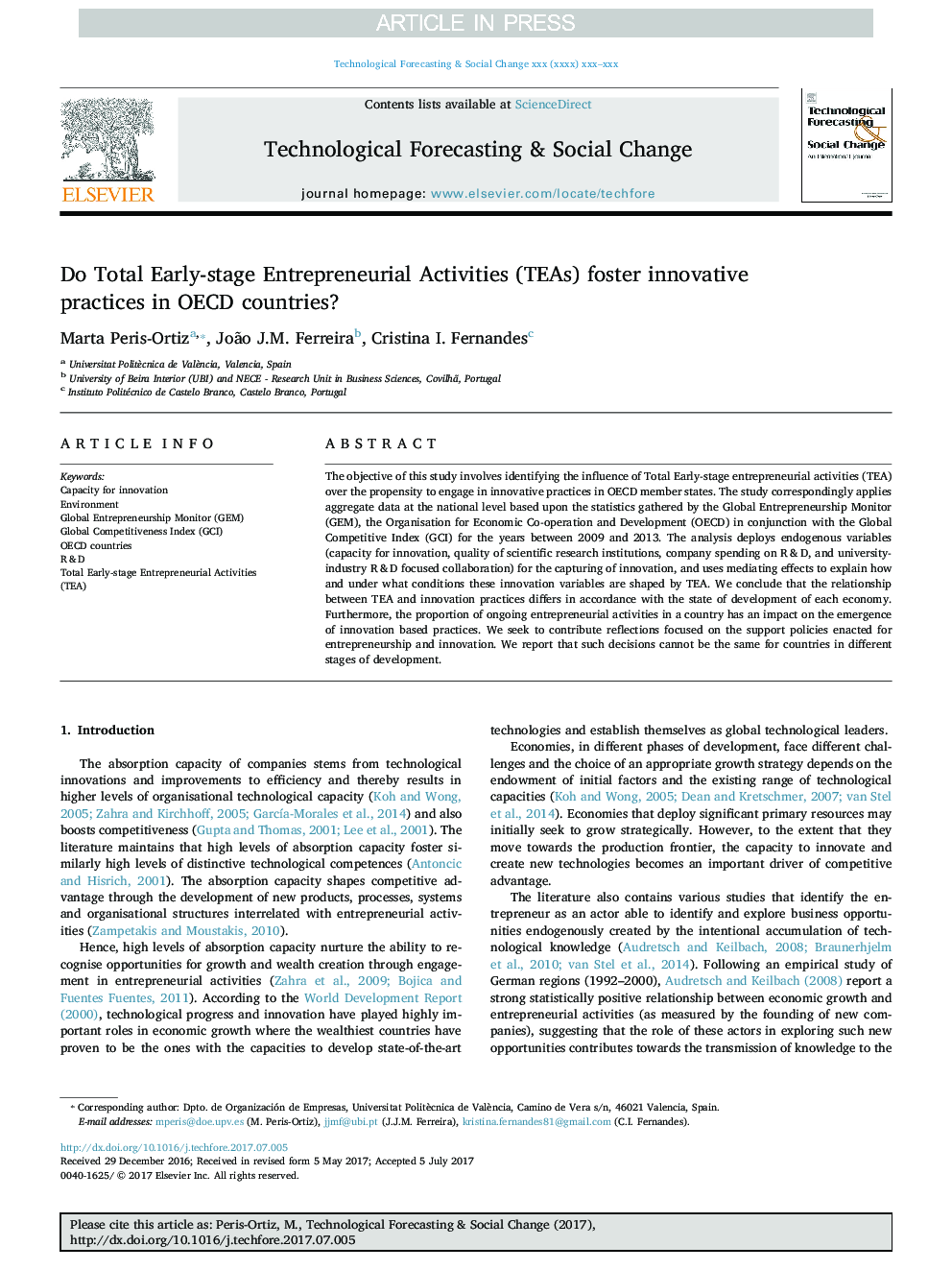| Article ID | Journal | Published Year | Pages | File Type |
|---|---|---|---|---|
| 7255541 | Technological Forecasting and Social Change | 2018 | 9 Pages |
Abstract
The objective of this study involves identifying the influence of Total Early-stage entrepreneurial activities (TEA) over the propensity to engage in innovative practices in OECD member states. The study correspondingly applies aggregate data at the national level based upon the statistics gathered by the Global Entrepreneurship Monitor (GEM), the Organisation for Economic Co-operation and Development (OECD) in conjunction with the Global Competitive Index (GCI) for the years between 2009 and 2013. The analysis deploys endogenous variables (capacity for innovation, quality of scientific research institutions, company spending on R&D, and university-industry R&D focused collaboration) for the capturing of innovation, and uses mediating effects to explain how and under what conditions these innovation variables are shaped by TEA. We conclude that the relationship between TEA and innovation practices differs in accordance with the state of development of each economy. Furthermore, the proportion of ongoing entrepreneurial activities in a country has an impact on the emergence of innovation based practices. We seek to contribute reflections focused on the support policies enacted for entrepreneurship and innovation. We report that such decisions cannot be the same for countries in different stages of development.
Keywords
Related Topics
Social Sciences and Humanities
Business, Management and Accounting
Business and International Management
Authors
Marta Peris-Ortiz, João J.M. Ferreira, Cristina I. Fernandes,
